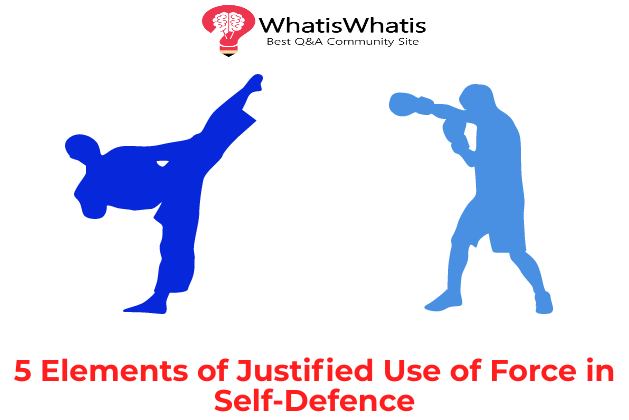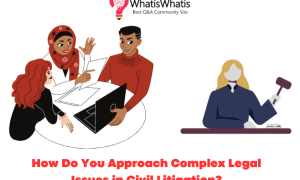Most people have heard from their parents that force and violence don’t solve any of your issues. You shouldn’t hit or attack another person at any cost. However, if you’re the one being attacked, defending yourself is necessary to avoid injuries that may cost your life. So, is using force ever justified?
Being a victim in any situation isn’t easy. You have to decide what will be the best thing for you to do. In cases like these, the use of force is completely justified and isn’t deemed a crime. To win the case as self-defence, use these 5 elements.
The Elements of Justified Use of Force in Self-Defence
1. Innocence
Are you the victim of an assault? In case you didn’t initiate the force or violence, you’re innocent, which gives you the right to use the force in self-defence, but only if it’s the necessary and only way to get out of the situation.
However, in certain circumstances, the initiator of the conflict can regain his innocence. By regaining innocence, he regained his right to use force in self-defence.
That’s why you need to learn some basic self-defence moves to prevent him from using your actions against you. By going on the self-defence course, you’ll not only learn how to defend yourself in certain situations but also what not to do.
2. Necessity and imminence
Most people know that in everyday occasions force and violence shouldn’t be used against another person unless it’s the only way out of the situation without endangering your wellbeing. This element claims that the force is only justified in case it is necessary. However, the justified use of force is only limited to imminent threats.
What does that mean? Imminence means that you can use force as self-defence to tackle threats that are happening at that very moment. If you’re using force to prevent any future event, that force won’t be justified. You’re obliged to seek for alternative solutions, such as calling the police.
3. Avoidance
Can the threat be avoided? If the answer is yes, then the use of force isn’t justified. If you’re able to find an alternative solution and avoid a physical clash, you should do so. How can a threat be avoided or stopped from harming you without the use of the force?
For example, if you’re being cyber-bullied, you can’t use force as a justified act of the self-defence. Why not? You can defend yourself from such a threat without using force.
For example, you can call the internet cyber-bullying number in your country, and get the necessary advice on how to deal with this type of online violence.
4. Keep the proportion in mind
This element is one of the key elements for the justified use of force. Is the force you’re using as self-defence proportional to the force you’ve been attacked with? Simply put, if you’re exposed to the non-deadly threat, you can’t use deadly force in the defence. If the threat can cause death or greater body harm, the use of deadly force is usually justified.
In some cases, the use of the deadly force won’t be justified. If you still claim that the deadly force was an act of self-defence, you need to convince the court in that.
However, you can’t do that alone. You’ll need help from experts, such as Kells Lawyers who specialise in criminal law. These professionals can provide you with expert advice that will help you get out of the court with minimal consequences.
5. Reasonableness
This element- reasonableness, can be applied to the previous four as well. The principle here is to determine whether your actions and perception of that event were the same in a reasonable person on a similar occasion. If you overreacted, the claim of justified use of force as self-defence fails.
So, for instance, if you believe that the other person was violating you in any way, but a reasonable person wouldn’t perceive that situation in that way, your actions as self-defence shouldn’t be justified. A similar principle can be applied to the imminence of threat, proportion and avoidance.
Conclusion
Whether you were acting in self-defence or claim to have done so, you need to keep in mind these 5 elements that will clear your actions in front of the court of law. Any overreaction or unreasonable action will fail as a self-defence claim. So, hire a good lawyer that can provide you with expert advice on this matter.





Leave a comment